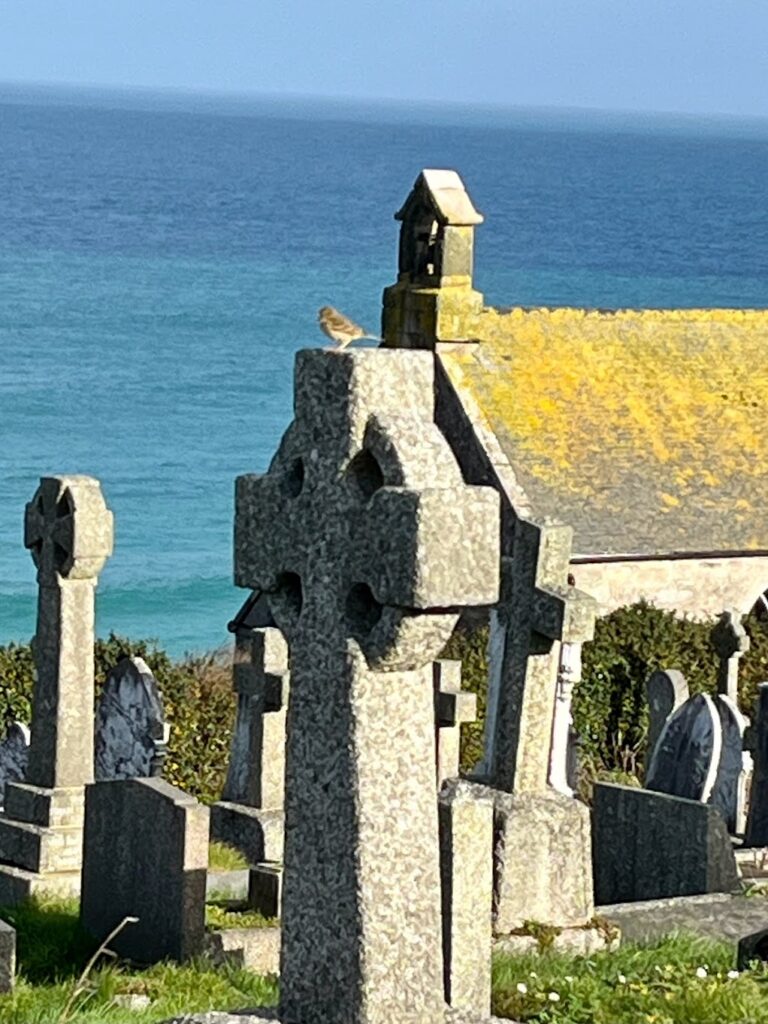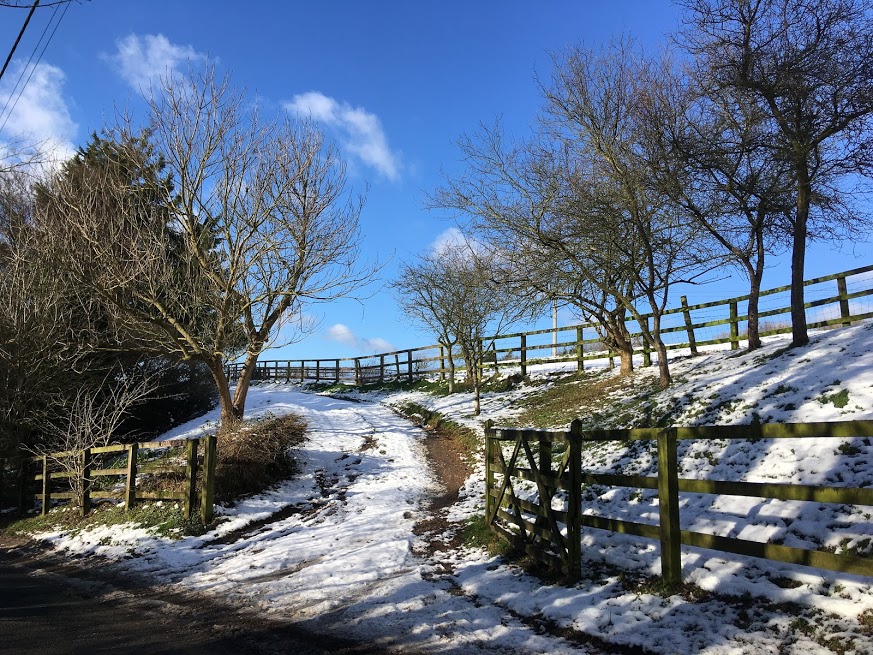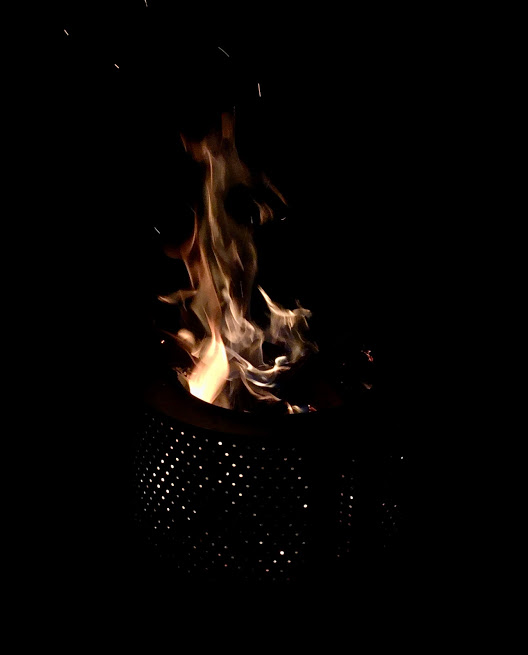This Week’s Bit of String: Bluebell woods
For several blissful minutes on Sunday, I was alone in a bluebell wood, without even being rained on. The freshly unfolding flowers formed a bright, periwinkle-coloured carpet beneath beech trees. Underfoot, leaves crackled and beech nut husks split like sparking embers, and birds sang with pheasants occasionally interjecting a cough. There were so many blooms I could smell them, a beautiful faint perfume akin to hyacinth. I sat against a mossy tree trunk.
“This is as good as it gets,” I thought. How often do I have time to just sit, and amidst such wonder? The colour of bluebells revives like a charge of electricity.

But to recharge a depleted object, said object ought to keep still. And I did not. I couldn’t surrender my quest to capture the stunning colour in an iPhone photo (spoiler: not possible) and I was checking my FitBit steps, already past 13,000, and mentally inventorying my remaining chores of the day. My brain is an action junkie.
It’s like this when I read as well. I love reading, I love being engrossed and being transported elsewhere. But I get a bit itchy, so to speak, when entering a thicket of dense paragraphs. This translates somewhat to my writing. I feel that writing dialogue is my favourite and my best.
Is this a character flaw? I’ve always worried it’s unintellectual, this reluctance to immerse myself in long, lyrical descriptive prose.
A Little Less Conversation
I do like descriptions of course; I’m not a complete philistine. I had to read Nathaniel Hawthorne in high school and loved The Scarlet Letter. I’ve gotten through plenty of other classics. It’s just a relief when a story whizzes through dialogue, especially since I do a fair portion of my reading while on the treadmill. Got to keep up a good pace!
Over the years I’ve had to realise that snappy dialogue doesn’t equal efficient plot development. I interpreted “show don’t tell” to mean you let readers watch a conversation unfold, and decide for themselves what’s going on. But there’s a lot more weeding and pruning required, as well as tactful planting.

A reasonably-sized paragraph can convey actions that took place, sometimes more naturally than having characters discuss it. This also establishes narrative voice: how does the story’s speaker sum up what’s happened? Same with world-building. Since I’m writing Eve’s story, her observations about the setting in Eden versus exile are key. But she’s not about to spend time going on about it when she has heaps of children, grandchildren, and so forth to keep an eye on.
Part of my editing process is to look at paragraph patterns. Check narration isn’t a litany of subject-led sentences (“She did this. He did that.”) Avoid extended conversations, which can sometimes feel like watching a tennis manage. (She said this. He said that.) I look for short, quick paragraphs to give way to long, and for longer reflective passages to be punctuated with pacy interaction.
That’s probably something I need to do better in life as well: accept the occasional quiet moment without freaking out about the next, sometimes self-imposed, deadline.
A Few Favourites
I revel in rich descriptions, particularly when they don’t travel in packs. They can be threaded throughout a piece. Here are some methods I love:
Make it multisensory: Readers will hardly be immersed if using only their eyes. We need to know how it sounds, smells, feels, as well. Some of us might not have full command of our senses! I enjoyed helping elderly, sightless Eve identify people by their voice and sometimes odour. These provide extra hints to secondary characters: “Her voice was softness on a flinty foundation.” “I listened to waves whisper like sighing logs, tossing seashells like crackling sparks.”

Metaphors drawing on everyday life: Even the grandest sights can be relatable. What we decide to compare things to says a lot. The poet Simon Armitage provides a gorgeous example of balancing the spectacular with the mundane in “The Civilians:”
“The golden evenings spread like ointment through the open valleys,
Buttered one side of our spotless washing.”
Stand-in for character turmoil: I often prefer setting descriptions to character ones. Character-driven stories rock my world, but while doing all that driving, said characters probably won’t have much time for self-analysis. They can project ourselves onto their surroundings; any description of place will indicate something about its people. Not just cliched rainy funerals or sunny meet-cutes, I mean places of isolation and toughness, or chaos or tenderness. People trying to make it in deserted rural settings in Lulu Allison’s Salt Lick. The depressed town in Carson McCullers’s The Heart is a Lonely Hunter, and the few inner chambers or the out-of-town lake that transcends this.
The fast-forward: I love time passage marked with carefully-selected details squished right up together. JK Rowling was great at this in Harry Potter; using the helpful device of plotting by school calendar, the holidays marked a chance to fill in story detail in a fun way. Harry’s first Christmas at Hogwarts, for example: “The lake froze solid and the Weasley twins were punished for bewitching several snowballs so that they followed Quirrell around, bouncing off the back of his turban…” I do this with my chapter beginnings at each new generation Eve witnesses.
I aim to be better at appreciating the Pause function of observation and description, not just the fast forward. How do you feel about long paragraphs and slow bits? What sorts of description do you enjoy reading, and put to use in your writing?




